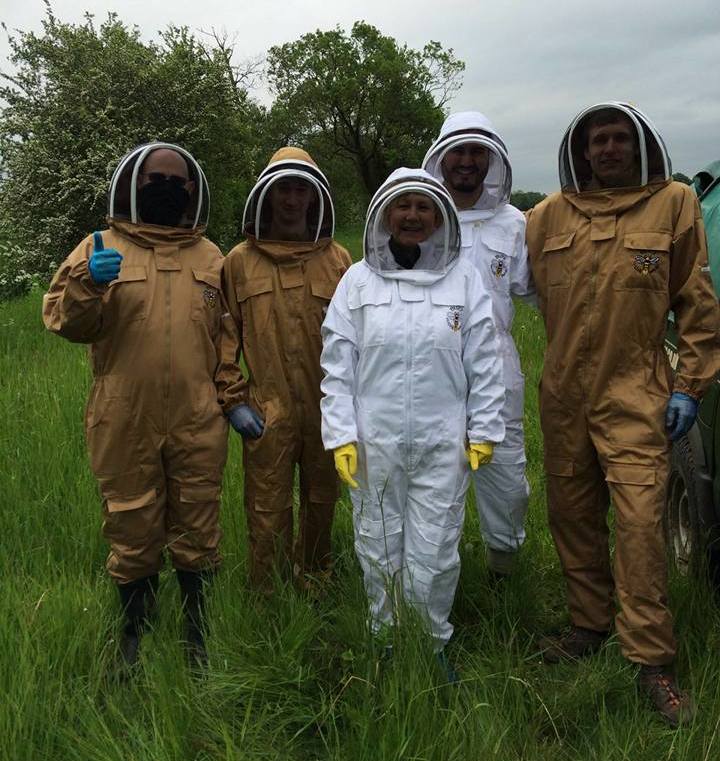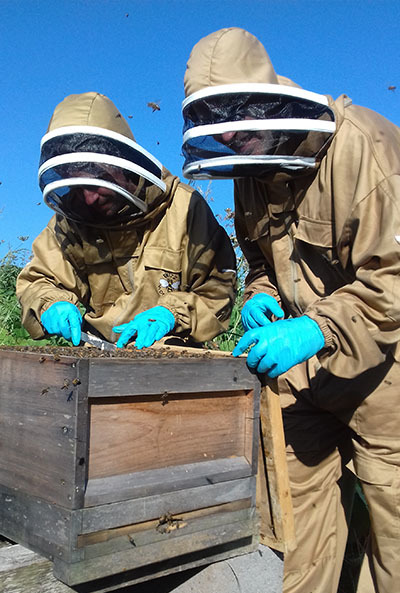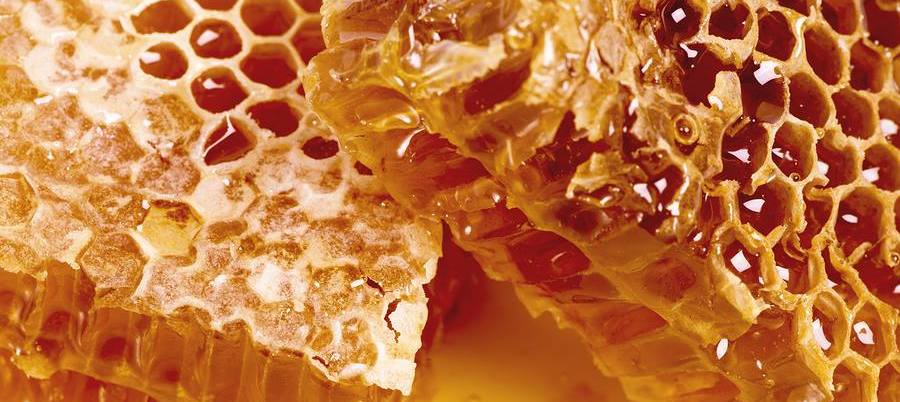
Apiary visits are usually a second phase after the students have had one of the talks about Honeybees. Numbers need to be small as the apiaries are situated in the Leicestershire countryside on farm land.
Ultimately we explore inside a hive but we first we talk about beekeeping using our eyes, ears and nose. Bee behaviour give clues to the hive even before it is opened.
We discuss the environment and the impact it has upon the bees. The students are encouraged to suggest solutions.

Risk Assessment & Conduct
Students need to be properly dressed. The Bee Farmer supplies the bee suits. Student need sturdy footwear that cover the ankles, wellington boot are excellent but high top boots are suitable. You should note that when bees fall on the floor they tend to climb up the nearest vertical surface - usually your leg starting at your feet!
The apiaries are industrial venues. Threats to safety have been assessed and minimized. In order to have a pleasant visit students and staff should follow the Bee Farmer's directions in relation to acceptable behaviour, risks and safe zones.
Bees are sensitive creatures, They may become restless if the weather turns cooler or they have been open for too long. The Bee Farmer will sense these changes in mood and may elect to close the hives for the benefit of the students and the bees.

What will we see?
A lot of bees is the answer. Each honeybee colony is about 50,000 bees strong. A hive contains vertical wooden frames on which the bees make their home but we can remove them. In removing the frames we are taking a slice of their home in order to examine it. We will see each stage of the bees development. Honey, Pollen and way it is arranged in the hive. We will see Drone (males bees) and with luck the Queen. We might see the waggle dance and bees being "born"
What if I get stung.
Firstly, a student or staff member with a known sensitivity to bee venom should not attend. If the student or staff member is stung tell the Bee Farmer. It might not be evident to him. Remain calm. Waving your arms about just makes the bees more inquisitive. Scrape the skin or the beesuit to remove the sting. This reduces the amount of venom delivered by the sting and thus reduces the impact of the sting. The Bee Farmer carries antihistamine cream which will alleviate the immediate itchiness. Tell the Bee Farmer if you feel light headed or a swelling in the tongue.
It may sound flippant but getting stung is much worse before you experience the sting. A sting, whilst something of a surprise at first, is then something of an anti-climax for most people. The key thing is to come along and enjoy the experience,
To discuss the potential for your school, please email info@thebeefarmer.co.uk







